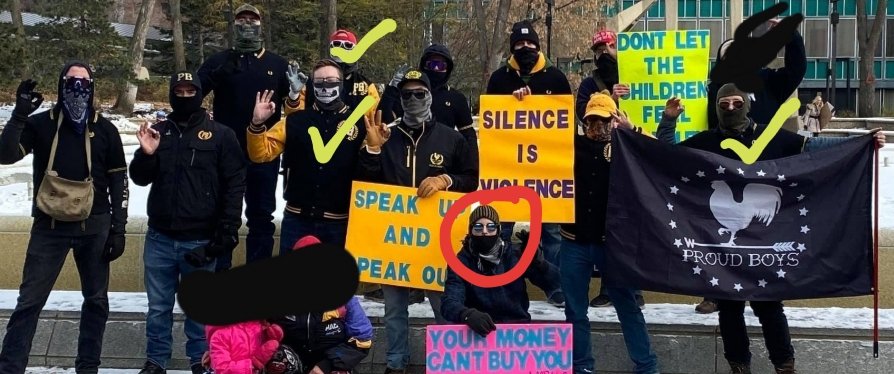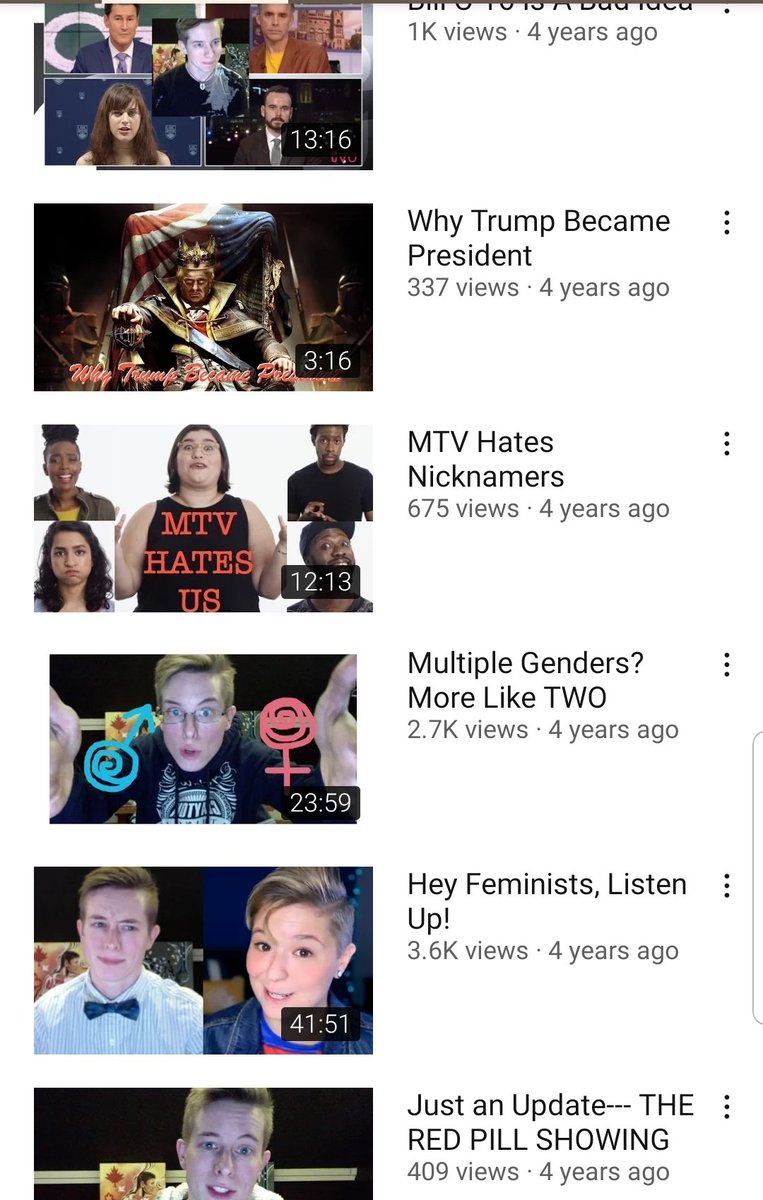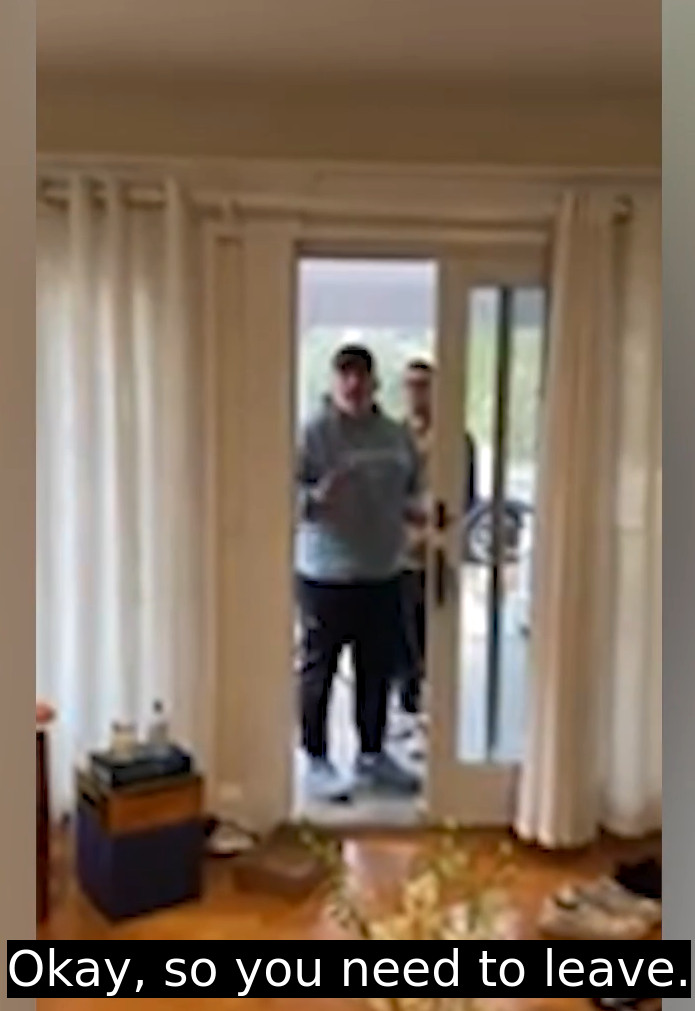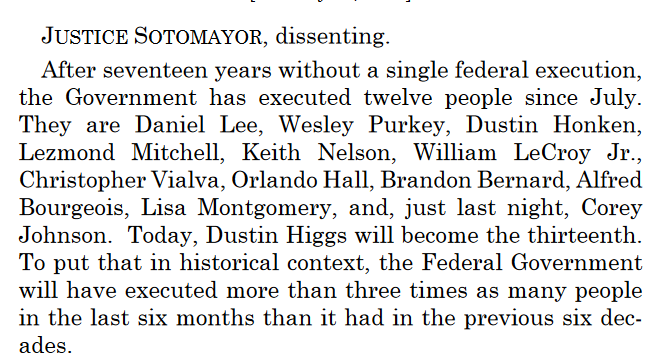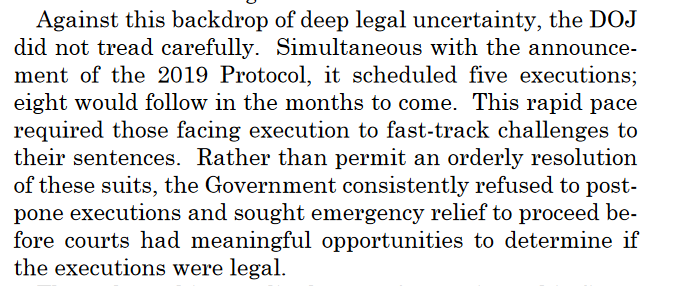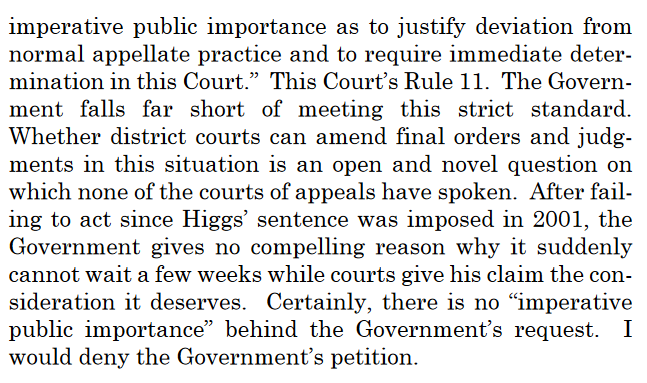7 days
30 days
All time
Recent
Popular
One of the judges this story mentions is William Cassidy, who was promoted from an Atlanta IJ position to a BIA member position in 2019 by the Trump DOJ. Cassidy has an awful history that has been well-documented, but I'm still enraged reading this reporting.
The story notes that the EOIR Director served as an ICE attorney in Atlanta and practiced before Cassidy for years. And it points to FOIA records unearthed by Bryan Johnson showing they remain friendly.
A trove of complaints against Cassidy was published by AILA in 2019 after FOIA litigation. They generally show misconduct, substantiated in the record, followed by "written counseling" etc.
One way Cassidy could avoid discipline is by turning off the recording device during the hearing. If he made a lewd or offensive comment off the record, all the EOIR would do is listen to the recording. If it's not there, the complaint is "unsubstantiated" https://t.co/wUeBPEEbpV

In that case, Cassidy joked about a detained immigrant saying he missed his wife. The complaint was dismissed because the ACIJ found "no levity or joking" in the comment.

\U0001f6a8New investigation: \U0001f6a8
— Tal Kopan (@TalKopan) January 22, 2021
How sexual harassment and misconduct has been allowed to flourish in the immigration courts, a system intended to give immigrants a fair chance to stay in the U.S.:https://t.co/Lw8hpK5jSe
The story notes that the EOIR Director served as an ICE attorney in Atlanta and practiced before Cassidy for years. And it points to FOIA records unearthed by Bryan Johnson showing they remain friendly.
A trove of complaints against Cassidy was published by AILA in 2019 after FOIA litigation. They generally show misconduct, substantiated in the record, followed by "written counseling" etc.
One way Cassidy could avoid discipline is by turning off the recording device during the hearing. If he made a lewd or offensive comment off the record, all the EOIR would do is listen to the recording. If it's not there, the complaint is "unsubstantiated" https://t.co/wUeBPEEbpV

In that case, Cassidy joked about a detained immigrant saying he missed his wife. The complaint was dismissed because the ACIJ found "no levity or joking" in the comment.

Today the superior court will hear oral arguments in Midtown Citizens Coalition v. Municipality of Anchorage. "MCC" is an unofficial group that opposes the recall of Assembly member Felix Rivera. The question is whether the Muni properly certified the recall petition. #aklaw
Before posting the MCC v. MOA briefs, it's worth noting that the legal arguments made by Rivera's supporters parallel those made by Dunleavy in Recall Dunleavy v. State. Both Rivera and Dunleavy argued that their recall petitions should have been denied by election officials.
So let's play a game called "Who Argued It." Guess which politician, Rivera or Dunleavy, made the following arguments in court:
1. "The grounds for recall stated in the petition are insufficient as a matter of law, and therefore the petition should have been rejected."

2. "Even under Alaska’s liberal recall standards, courts have not hesitated to find petitions legally insufficient when those petitions did not contain sufficient factual allegations of unlawful activity to state sufficient grounds for recall.”
3. "The allegations must be sufficiently particular to allow the official a meaningful opportunity to respond . . . . [and] ensure that voters have the information they need to vote."
Oral argument in scheduled for January 21 at 3 pm in this case & will be telephonic. To listen, call 1-800-768-2983, code: 2640561#. Alternate phone numbers if the toll-free number gives you trouble: 1-907-206-2349 or 1-913-904-9867 or 1-212-231-3884.
— Alaska Court System (@AlaskaCourt) January 20, 2021
Before posting the MCC v. MOA briefs, it's worth noting that the legal arguments made by Rivera's supporters parallel those made by Dunleavy in Recall Dunleavy v. State. Both Rivera and Dunleavy argued that their recall petitions should have been denied by election officials.
So let's play a game called "Who Argued It." Guess which politician, Rivera or Dunleavy, made the following arguments in court:
1. "The grounds for recall stated in the petition are insufficient as a matter of law, and therefore the petition should have been rejected."

2. "Even under Alaska’s liberal recall standards, courts have not hesitated to find petitions legally insufficient when those petitions did not contain sufficient factual allegations of unlawful activity to state sufficient grounds for recall.”
3. "The allegations must be sufficiently particular to allow the official a meaningful opportunity to respond . . . . [and] ensure that voters have the information they need to vote."






